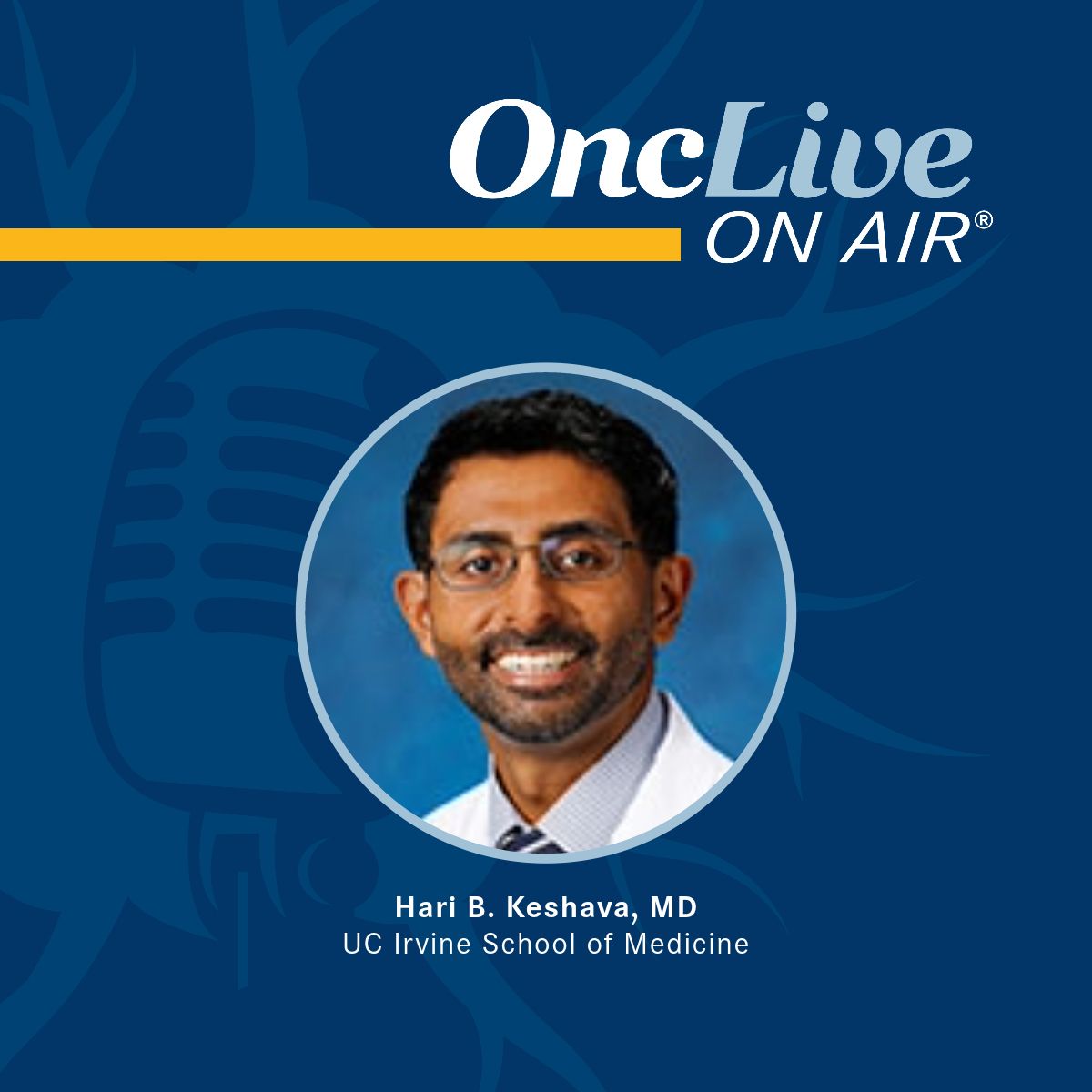News
Article
FDA Grants Accelerated Approval to Tarlatamab for ES-SCLC
Author(s):
The FDA has granted accelerated approval to tarlatamab for the treatment of patients with ES-SCLC with disease progression on or after platinum-based chemotherapy.
FDA

The FDA has granted accelerated approval to tarlatamab-dlle (Imdelltra) for the treatment of patients with extensive-stage small cell lung cancer (ES-SCLC) with disease progression on or after platinum-based chemotherapy.1
Efficacy was evaluated in the open-label, multicenter, multi-cohort, phase 2 DeLLphi-301 trial (NCT05060016), which included 99 patients with relapsed/refractory ES-SCLC with disease progression after platinum-based chemotherapy.1
Results from the trial indicated that the objective response rate (ORR) was 40% (95% CI, 31%-51%) and the median duration of response (DOR) was 9.7 months (range, 2.7 to 20.7+) with tarlatamab. Among the 69 patients with evaluable platinum-sensitivity status, the ORR was 52% (95% CI, 32%-71%) in 27 patients with platinum-resistant SCLC, which was defined as progression within 90 days after the last dose of platinum therapy, and 31% (95% CI, 18%-47%) in 42 patients with platinum-sensitive SCLC, which was defined as progression at least 90 days after the last dose of platinum therapy.1
To be eligible for enrollment, patients at least 18 years of age had to have histologically or cytologically confirmed relapsed/refractory SCLC with progression or recurrence following 1 platinum-based regimen and at least 1 other prior line of therapy. Patients needed to be willing to provide archived tumor tissue samples or be willing to undergo pretreatment tumor biopsy. An ECOG performance status of 0 or 1; a minimum life expectancy of 12 weeks; and measurable lesions per RECIST 1.1 criteria within 21 days prior to the first dose of study therapy was also required. Patients with treated brain metastases were eligible to enroll if they met defined criteria.2
Exclusion criteria included the presence of symptomatic brain metastases, interstitial lung disease or non-infectious pneumonitis, and an active immunodeficiency.1
In part 1, patients were randomly assigned 1:1 to receive 10 mg (n = 88) or 100 mg (n = 88) of tarlatamab. In both arms, patients received 1 mg of the agent on day 1, followed by their assigned dose on days 8, 15, and every 2 weeks thereafter. In parts 2 (n = 12) and 3 (n = 34), the dose-expansion and reduced inpatient monitoring periods, respectively, patients received 10 mg of tarlatamab in the same dosing schedule as in part 1.3
Patients received tarlatamab until disease progression or unacceptable toxicity.1
The primary and secondary efficacy end points were ORR and DOR, respectively, per RECIST 1.1 criteria assessed by both investigator and blinded independent central review. Disease control, progression-free survival (PFS), overall survival (OS), safety, and serum concentration levels of tarlatamab were also evaluated.2
Results from the trial published in the New England Journal of Medicine in 2023 showed that tarlatamab led to a median PFS of 4.9 months (95% CI, 2.9-6.7) in the 10-mg cohort and 3.9 months (95% CI, 2.6-4.4) in the 100-mg cohort for patients with advanced SCLC and disease progression on or after platinum-based chemotherapy. Median OS, though not yet mature with over 50% of patients in both cohorts still alive at last follow-up, was 14.3 months (95% CI, 10.8–not evaluable [NE]) and NE (95% CI, 12.4-NE) in the 10-mg and 100-mg cohorts, respectively. The median follow-up was 10.6 months in the 10-mg group and 10.3 months in the 100-mg group.3
Additional results showed that in the 10-mg arm (n = 100), the ORR was 40% (97.5% CI, 29%-52%), with a disease control rate (DCR) of 70% (95% CI, 60%-79%). In the 100-mg arm (n = 88), the ORR was 32% (97.5% CI, 21%-44%), with a DCR of 63% (95% CI, 52%-73%). Notably, responses were recorded irrespective of DLL3 expression or availability of tumor tissue.3
The median time to response was 1.4 months (range, 1.1-9.6), and the median DOR was not reached. Of the 68 responders, 59% (n = 40) remained in response for 6 months or more.3
Per the FDA, the recommended dose of tarlatamab is an initial dose of 1 mg administered as an intravenous infusion over 1 hour on day 1 of cycle 1, followed by 10 mg on days 8 and 15, then every 2 weeks thereafter until disease progression or unacceptable toxicity.1
The prescribing information for tarlatamab includes a boxed warning for serious or life-threatening cytokine release syndrome (CRS) and neurologic toxicity, including immune effector cell–associated neurotoxicity syndrome.1
The most common adverse effects reported with tarlatamab include CRS, fatigue, pyrexia, dysgeusia, decreased appetite, musculoskeletal pain, constipation, anemia, and nausea. The most common grade 3 or 4 laboratory abnormalities include decreased lymphocytes, decreased sodium, increased uric acid, decreased total neutrophils, decreased hemoglobin, increased activated partial thromboplastin time, and decreased potassium.1
References
- FDA grants accelerated approval to tarlatamab-dlle for extensive stage small cell lung cancer. FDA. May 16, 2024. Accessed May 16, 2024. https://www.fda.gov/drugs/resources-information-approved-drugs/fda-grants-accelerated-approval-tarlatamab-dlle-extensive-stage-small-cell-lung-cancer
- A phase 2 study of tarlatamab in patients with small cell lung cancer (SCLC) (DeLLphi-301). ClinicalTrials.gov. Updated May 13, 2024. Accessed May 16, 2024. https://www.clinicaltrials.gov/study/NCT05060016
- Ahn MJ, Cho BC, Felip E, et al. Tarlatamab for patients with previously treated small-cell lung cancer. N Engl J Med. 2023;389(22):2063-2075. doi:10.1056/NEJMoa2307980









